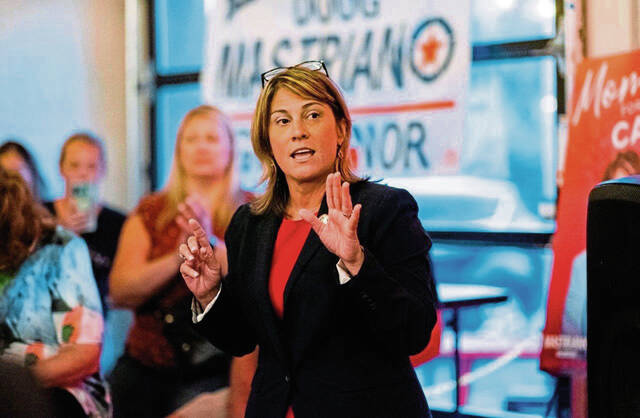When it comes to the U.S. government, no one is drafted to be vice president. It’s an honored invitation. Presidential candidates search for someone who is a complement, providing strengths where there are weaknesses while still having a similar overall direction. Sometimes that’s a real partnership. Other times, it’s a waiting game. Regardless, the vice presidential candidate knows who the top of the ticket is when signing on.
For governors, it can be different. In some states, it happens like the presidency. In others, the lieutenant governor is a separate job that runs independently, just like a legislator or mayor who happens to be on the ticket at the same time. A few have no lieutenant governor at all.
Then there’s Pennsylvania — and a handful of other states — where a candidate decides to run for lieutenant governor. When the primary narrows the field to one nominee from each major party, those people are politically handcuffed to their party’s gubernatorial nominee in a joint ticket.
The benefit here is that it avoids a situation like the presidency had in the early years when John Adams and Thomas Jefferson, who hated each other, occupied the top two seats of government. On the other hand, it shackles people who never chose to work together and might not have a similar vision. See Gov. Tom Wolf and his first lieutenant governor, Mike Stack, for example.
In 2023, Pennsylvanians might have a chance to vote on a change that would make the state process function more like it does federally. It was part of Senate Bill 106, a joint resolution that would make a number of changes to the state constitution, including stating there is no right to abortion under state law, making it easier to evade a gubernatorial veto and allowing for election auditing.
That bill was challenged by Wolf in July on grounds that it throws too many issues into one confusing decision for voters. The state Supreme Court declined to expedite the issue, which could go before voters in the May primary.
It needs to clear the hurdle of another vote from the Legislature in a consecutive session to make it onto the ballot. With the state House of Representatives changing hands, there is no guarantee that will happen. That gives time for careful thought about the issue.
The question deserves to be considered on its own merits rather than being bundled with other complicated political and philosophical issues. It could change not only how lieutenant governors are selected in the future but also who steps forward and how. It could make the process more closed-door and private.
It’s an important distinction with good arguments either way. That means that if a decision about whether to change how the position is handled will go in front of the voters, the voters deserve the opportunity to focus on it without additional issues muddying the waters.








